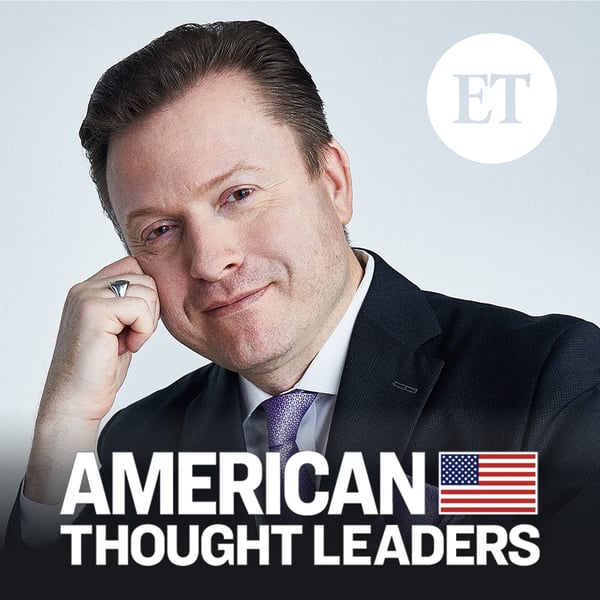How America Betrayed Its Children During the Pandemic: David Zweig
American Thought Leaders
The Epoch Times
4.9 • 1.1K Ratings
🗓️ 25 April 2025
⏱️ 58 minutes
🧾️ Download transcript
Summary
David Zweig is a journalist and author of “An Abundance of Caution: American Schools, the Virus, and a Story of Bad Decisions.” His book is a searing criticism of the policy to close schools across America during the COVID-19 pandemic. The result: Major lags in education achievement, a mental health disaster, and so much more that simply cannot be easily quantified.
“How do we track what happened to that kid who could have gotten into college and instead is doing something else now? We don’t know exactly the kids who were lost, who just stopped going to school entirely.”
And what was it all for?
“They were sacrificed for nothing,” Zweig says.
Views expressed in this video are opinions of the host and the guest, and do not necessarily reflect the views of The Epoch Times.
Transcript
Click on a timestamp to play from that location
| 0:00.0 | How do we track what happened to that kid who could have gotten into college and instead is doing something else now? |
| 0:06.0 | We don't know exactly the kids who were lost, who just stopped going to school entirely. |
| 0:12.0 | David Zweig is a journalist and author of an abundance of caution, American schools, the virus, and a story of bad decisions. |
| 0:20.0 | This was a world-altering event where our society favored older people and other groups |
| 0:28.1 | to the detriment of children. |
| 0:30.6 | And there was no benefit for this. |
| 0:33.0 | They were sacrificed for nothing. |
| 0:34.8 | We, in America, had a scientific culture during the pandemic that favored |
| 0:39.7 | theory over evidence. It's quite an extraordinary moment. This is American Thought Leaders, |
| 0:45.5 | and I'm Yanya Kellogg. David Swagg, such a pleasure to have you on American Thought Leaders. |
| 0:52.6 | Thanks for having me. I'm going to start by reading you a quote from the head of NIH during the COVID pandemic, Dr. Francis Collins. |
| 1:01.9 | It's a part of a quote. |
| 1:03.3 | He said, we wanted to be sure people motivated themselves by what we said because we wanted change to happen in case it was right. |
| 1:11.4 | But we did not admit our ignorance. |
| 1:13.7 | That was a profound mistake. |
| 1:16.9 | Your book in a sense is charting, a sort of accounting of that mistake. |
| 1:23.2 | Now what do we actually know about the costs of what happened, the impact of what happened |
| 1:29.3 | today? |
| 1:30.3 | How much time do you have? |
| 1:32.3 | I mean, we know a lot and one of the important things, probably the most important thing that |
| 1:41.3 | I tried to achieve with this book was to show what we knew at the moment |
| 1:47.1 | during that time. Initially, there were many, many people within public health and otherwise who |
... |
Transcript will be available on the free plan in 26 days. Upgrade to see the full transcript now.
Disclaimer: The podcast and artwork embedded on this page are from The Epoch Times, and are the property of its owner and not affiliated with or endorsed by Tapesearch.
Generated transcripts are the property of The Epoch Times and are distributed freely under the Fair Use doctrine. Transcripts generated by Tapesearch are not guaranteed to be accurate.
Copyright © Tapesearch 2025.

